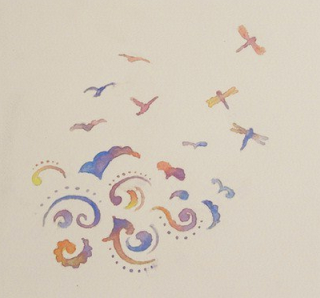Before thinking about romantic relationships in any detail, it is important to look at the reasons people have for wanting to have, or staying in relationships...
 Below are unhealthy and healthy reasons for wanting a romantic relationship. Everyone has a relationship for a mixture of these reasons, however if your primary reasons for having a certain relationship are unhealthy, or you have more unhealthy reasons than healthy ones, it is time to think a little deeper about where your relationship is headed. If you’re not in one, maybe think about how and where you’re looking for relationships…
Below are unhealthy and healthy reasons for wanting a romantic relationship. Everyone has a relationship for a mixture of these reasons, however if your primary reasons for having a certain relationship are unhealthy, or you have more unhealthy reasons than healthy ones, it is time to think a little deeper about where your relationship is headed. If you’re not in one, maybe think about how and where you’re looking for relationships…
Unhealthy reasons for wanting a relationship:
- To feel less lonely
- To feel more appreciated
- To feel safer
- To be needed
- To be successful
- To gain self-esteem
- To gain confidence
- To have physical/sexual attention
These motivations for relationships are based on a lack of something or feeling that something is missing from your life. These motivations would exist before you have even met someone. Motivation for starting a relationship should not be superficial or self-centred. Too many of these reasons can lead to unhealthy relationships. For example if you want to be less lonely you may find you're placing most of your hopes for company on this one person. It can lead to unhealthy and unequal dependance.
You have to learn to love and accept who you are, before you can understand and appreciate someone else's love for you properly.
Healthy reasons for wanting a relationship
- Spending time with someone special who brings out the best in you
- Sharing emotions
- Sharing memories
- Committing yourself to someone you appreciate and care for
- Knowing someone intimately and loving them flaws-and-all
- Sharing experiences good and bad
- Supporting each-other
- Growing with one special person in all aspects of life
- Building familiarity
- Building mutual respect
Ideal Relationships
One of the most healthy relationship attitudes is that your spouse is free. They choose to be with you. You respect each-other and accept each other for who you both are.
Healthy relationships don't involve game-playing or manipulation. There is, however, a need for mutual interest, and both partners should be showing their commitment (perhaps in different ways) but you should be meeting each-other half way.
According to Psychological theorists, the love that you have in a serious relationship has three main 'components' - commitment, passion and intimacy. You need all three for a lasting relationship. Without committment you don't have loyalty and trust, without passion you don't have the drive and intensity, and without intimacy you don't have the familiarity and sharing.
Trust is vital for a healthy relationship - you need to know that you can trust your partner to be loyal and honest with you. As well as that (and harder to achieve) is faith - implicit trust and belief without proof. This is more of an instinct and you need to be very honest with yourself and your partner if this is missing, or not yet developed.









